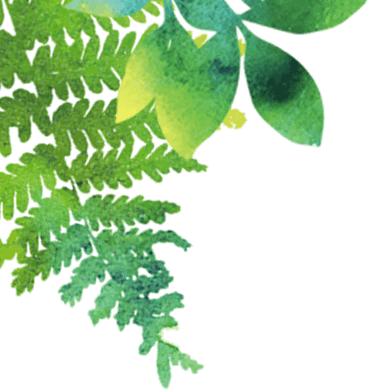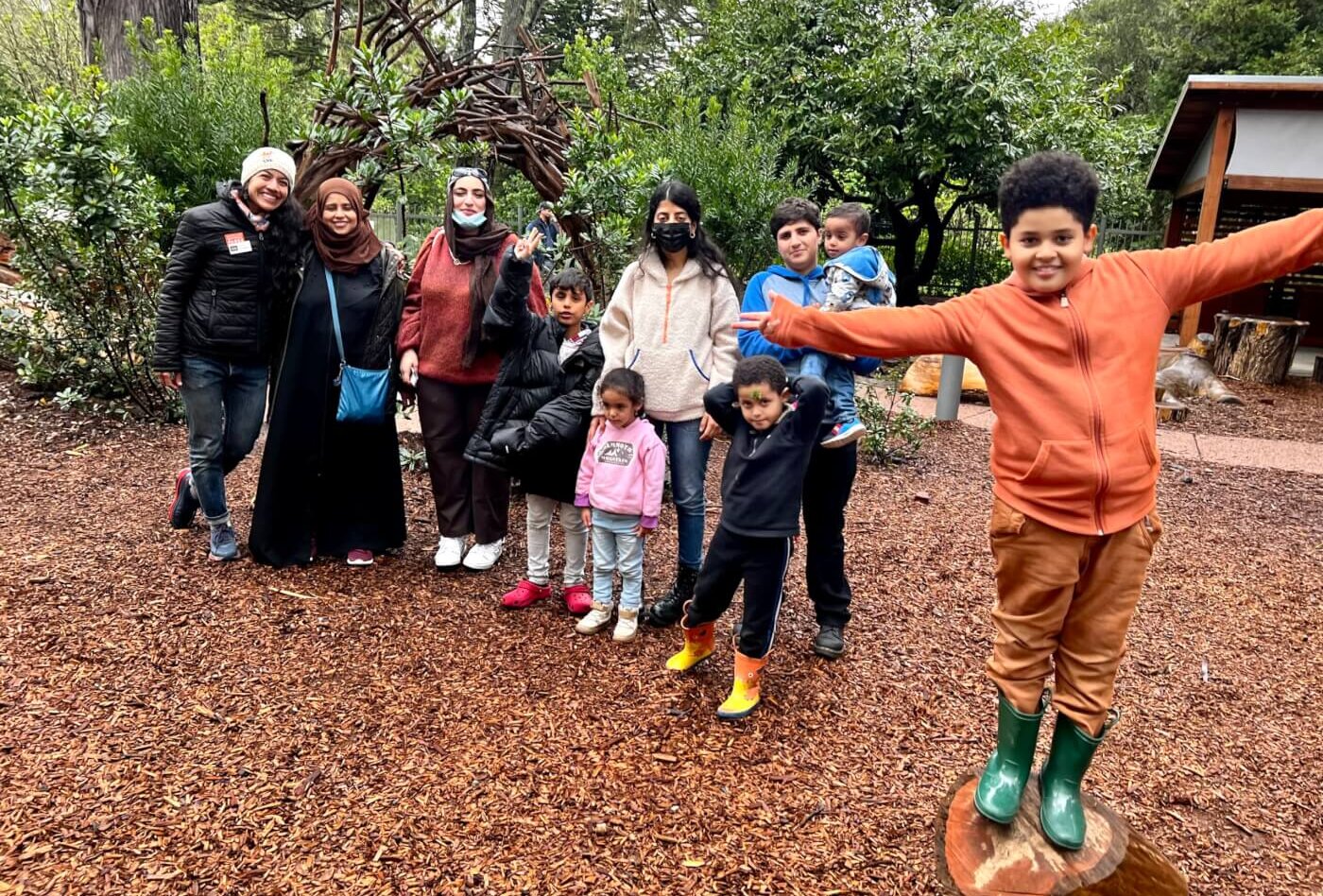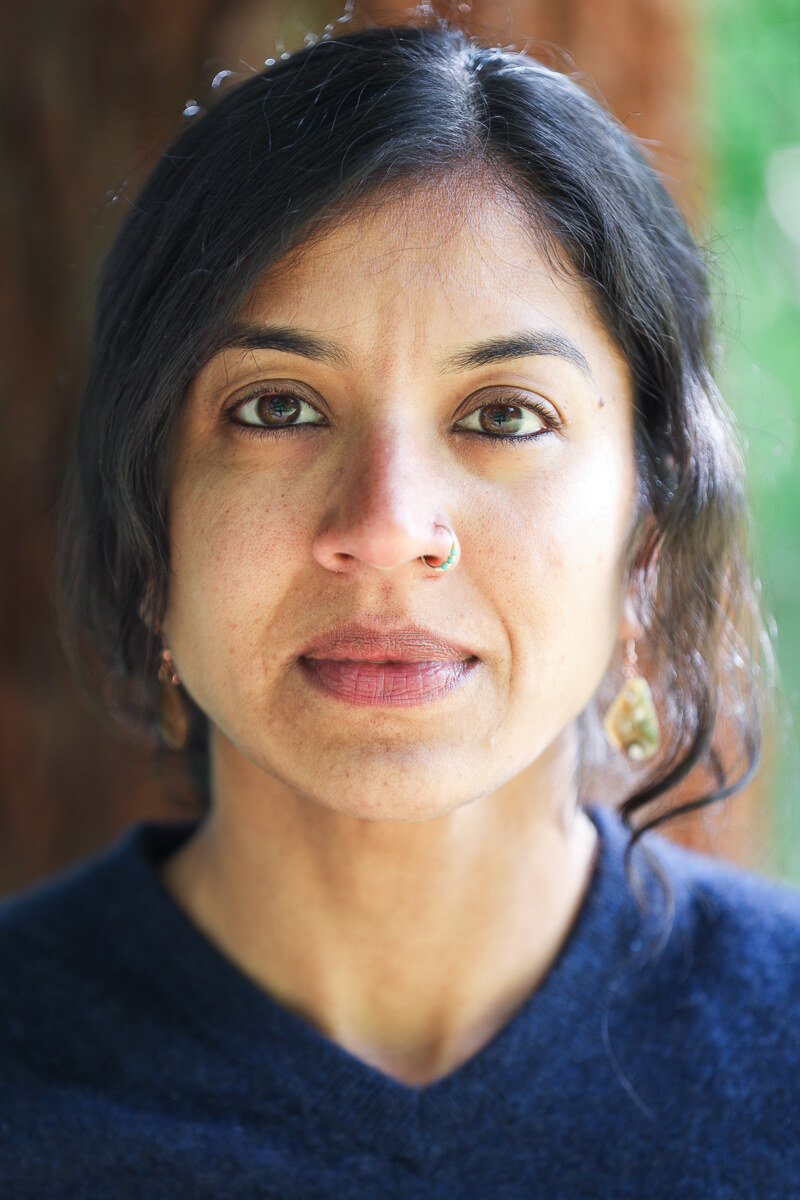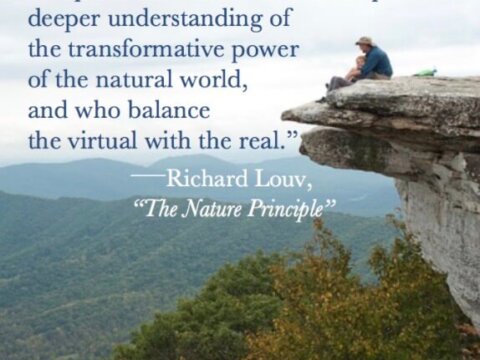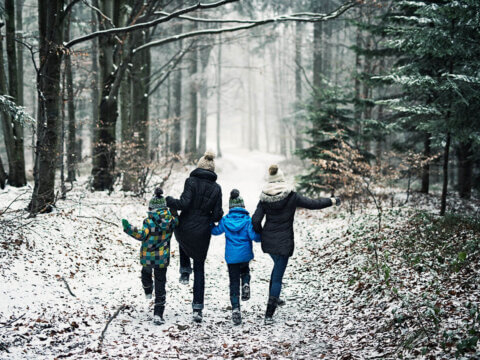Park pilgrimages: Unearthing new ways of being in nature
Editor’s note: This story is being published to coincide with the month of Ramadan, a holy time for the Muslim community. Marking the ninth month of the Islamic calendar, Ramadan is a time for spirituality and reflection, and is observed worldwide through fasting and prayer. This year’s Ramadan takes place from March 22 to April 20, 2023.
“Is the park ready for fifty women in hijabs, Yakuta?” It was a phone conversation, so I couldn’t see her face or her gestures. The question might come off as perturbing, but Bushra’s mirthful tone suggested otherwise. It was more like joy, as I think she was visualizing her beloved community running and roaming freely in nature — far from poverty, lack of access, and the current drug- and trauma-riddled streets of the Tenderloin district of San Francisco, California, which they now called home. Her beloved community — a mix of Syrian, Lebanese, Pakistani, Indian, Bangladeshi and Yemeni families, many of them escaping war-torn countries, pining for a normal and safe life for their children and elderly in America.
I knew very little about Bushra and her Yemeni roots, and what inspired her to be the voice for her community at the Cross-Cultural Family Center (CCFC) in San Francisco, where she serves as a fierce yet compassionate teacher and community builder. But I knew that fate had brought us together for a reason. Our first meeting prior to this phone conversation had been a video chat with a group of other community leaders from the Tenderloin Community Benefit District (TLCBD), and Arab Resource & Organizing Center (AROC). Our collective dream? To transport residents of the Tenderloin district to a wonderland in nature where they could celebrate Eid ul-Fitr — a festival that marks the end of the fasting and prayer period of Ramadan — without the worry of being attacked or surrounded by violence and racial slurs.

Staff and volunteers from Arab Resource and Organizing Center recently co-hosted an Iftar (fast-breaking) dinner at the San Francisco City Hall for the Tenderloin Muslim communities and San Francisco city and county officials.
One of the earliest teachings for our Muslim brothers and sisters is of the five pillars of Islam. These pillars of Faith (shahada), Prayer (salat), Alms (zakat), Fasting (sawm), and Pilgrimage (haj) form a way of life. While I had religiously practiced some of these pillars until I was a teenager, it was only when my childhood upbringing started to meet my adulthood spiritual practice and my growing love with the natural world that these pillars started to have a deeper meaning. At this internal junction is where the inner layers of cultural and social identities within started to peel, even melt, taking new shapes and forms, re-emerging with renewed and beautiful ways of seeing and being.
Paging through my old daily journal, I stumble upon a scribble that reminds me of dawn one particular morning, years ago. I sat cross-legged on the floor of my home, staring out my window — at a buckeye, a pine, half a sky — listening to the aural landscape around me and the silence within, after my hour-long Vipassana meditation sit.
The metta bhavana (loving-kindness meditation) at the end of this particular sit had put me in a different state of reflection about the ongoing month of Ramadan, and I let the inner voice dare to ask the question: Could the five pillars have a new meaning and serve as a metaphor in my work in conservation, restoration, stewardship and community building in the parks? Where were they showing up in my movement on the trails, in what I was listening to from the birds and wildlife around me, the plants I was interacting with, and the soil and water I was touching? I stuck my head out of the window and looked for the moon. It was almost full, and according to the lunar calendar I had a few weeks before Eid ul-Fitr, or the Festival of Eid, to sit with these new questions that had graciously arrived.

A young person explores a nature play area offered by San Francisco Children & Nature (sfchildrennature.org).
The next day I decided to share an invitation with our park volunteers and the larger Bay Area communities for an Eid in the Parks Program, of course with a trace of nervousness, but full of hope. In my head, I wondered, “How would this invitation be received? Would our local Muslim families buck tradition and attend a habitat restoration volunteer event to celebrate this intimate festival outdoors? With all the challenges around Trump’s recent “Muslim Ban,” would they feel welcome at this park site?”
These questions walked with me to Lands End, a coastal park in San Francisco’s Golden Gate National Recreation Area where I hoped to facilitate the Eid in the Parks program. A walk is always a reliable companion — a deep listener and organizer of the mind. The new spring wildflowers and the familiar sights and sounds here brought instant comfort. The ocean, which has been my mentor all these years, calmed the mechanisms churning inside me. My feet touched the Coastal Trail, and as I walked, I realized that the answers to all my questions were already in nature — and now I was seeing these connections so clearly! I smiled a big smile, waved and greeted all my usual human (and more-than-human) friends, and walked back home with clarity and readiness, waiting for the moon to signal the celebration.
“Eid Mubarak, Ma!” I greeted my mother during our telephone call. Across Asia, the moon had already been sighted and festivities now filled the air. Sitting many moons apart from her, the Pacific Ocean bridging the distance, Ma wanted to know how I was going to celebrate, if I would find a mosque for prayers, and if I would have friends over for a gathering. I told her that I had something different in mind today — that I was already in my place of prayer at Lands End, surrounded by a community of new and returning volunteers, ready to respectfully engage them in an interpretive talk on the environmental spirit of Islam. I heard acceptance in her voice, said goodbye, and put the phone away. If only she could be beside me to witness what was to unfold.
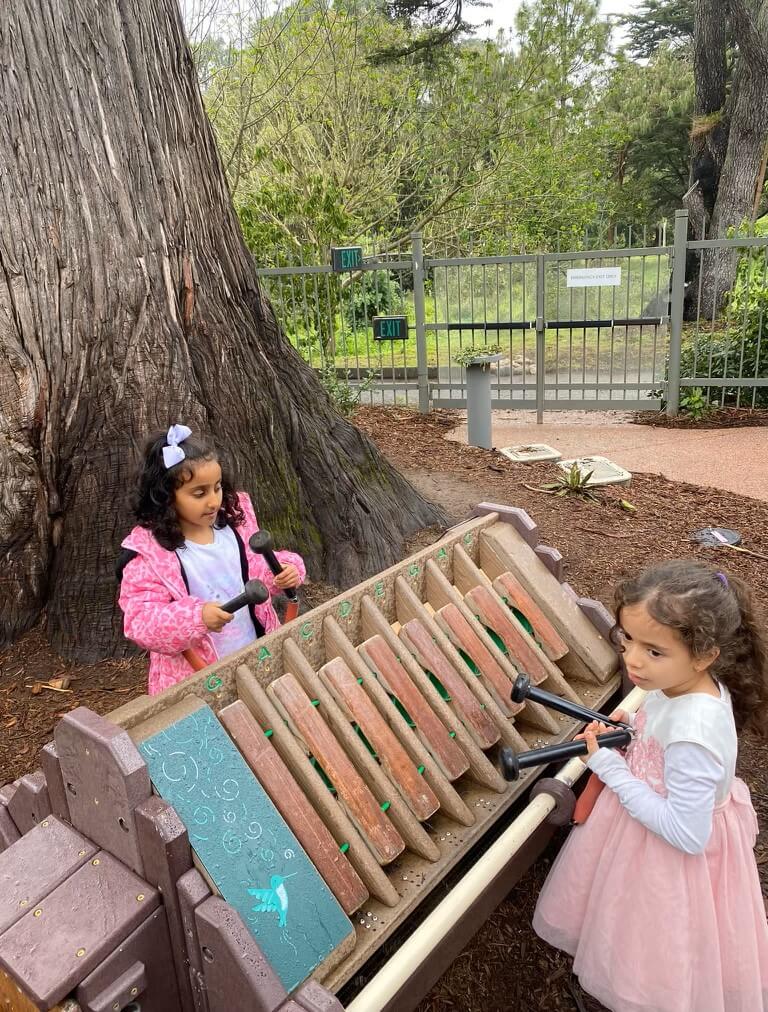
Children explore music on a xylophone in the park.
Later that day, the program began with warm Eid greetings all around. I invited our participants to gather in a circle and introduced them to the relationship that I had witnessed between Islam’s five pillars and the park. In silence and togetherness, they listened and observed.
First pillar: Faith and belief. Where do I see faith? When we start a long-term restoration project to bring back habitat for a threatened species, or address a climate change challenge through a climate adaptation project, I must have the faith that our approach will work. Without faith, there is no direction forward. And faith often leads to prayer.
Second pillar: Prayer and action. What is prayer after all? To me, it is about bringing awareness and sharing positive and healing thoughts for someone or something. In my mother tongue Gujarati, a conversation between two people often ends with the salutation, “Dua ma yaad,” which translates to “Remember me in your prayers.” Could parks become places of prayer, where our gathering and actions lead to the health and well-being of all beings and fill up our cups with faith?
Third pillar: Alms and service. In an age of so many competing demands from life, our participants had chosen to give their time to nurture the park site. They were giving alms in the form of care and attention to the park, helping build a thriving habitat for many other beings, thus serving their souls too. I have always believed that time is the greatest and most priceless gift we can give to each other.
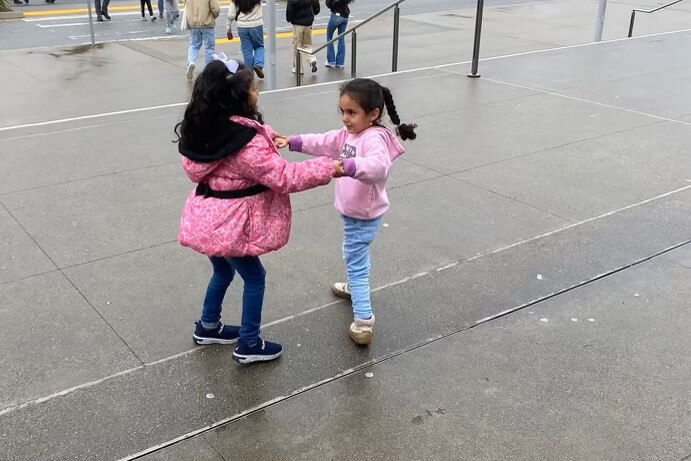
Children dancing and frolicking in Golden Gate Park.
Fourth pillar: Fasting and patience. If you have had the opportunity to fast, you know that the most important virtue it teaches you is patience. Where does patience show up in the parks? We start plants from tiny seedlings, but for them to bear flowers and fruits can take months, sometimes a whole year. That requires patience. Patience is needed in every aspect of our stewardship activities from collecting seeds in the plant nursery, to growing the saplings and then planting.
Fifth pillar: Pilgrimage and migration. I then brought the group’s awareness to a few different forms of pilgrimage — which, in some situations, are not done by choice. Migrations of birds and butterflies, of other wildlife — and migrations due to climate change. Migration, though beautiful and natural, can also be for survival for many communities.
I observed the group and their movements. I saw tears and sensed empathy in the circle. Perhaps, a new way of seeing the park and the land we stood upon? I sensed a shift in energy.
Slowly, we picked up our tools and proceeded to perform the planned habitat restoration work, where I heard participants continue to explore the five pillars as they interacted with the plants and pollinators. At breaktime, a bowl of ‘sheer khurma,’ a sweet dish made with vermicelli, dates and nuts, was enjoyed by all. Two young Muslim girls in a hijab offered to use a henna cone to draw a butterfly and a flower — which they had just observed for the first time — on the hands of their new park friends. This was in 2017.
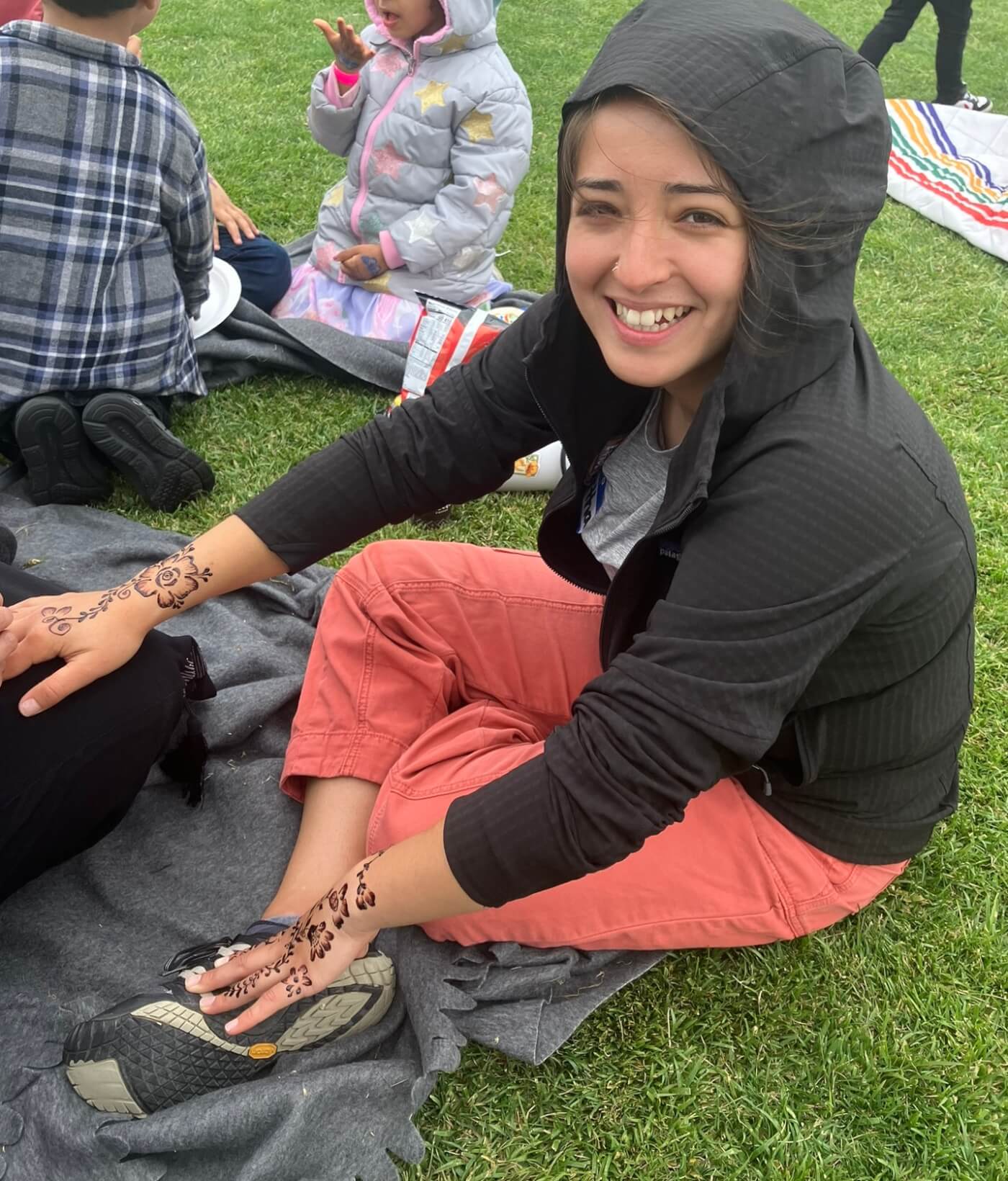
Park staff get their hands decorated with henna art
During the COVID-19 pandemic, the word ‘kinship’ took center stage in my life. Essays from the Kinship book series, “Kinship: Belonging in a World of Relations,” co-edited by Dr. Robin Wall Kimmerer, Dr. John Hausdoerffer and Gavin Van Horn, became a healing balm and a compass, making life feel fertile again. Reading this series introduced new words to my limited English vocabulary and a language for my feelings, observations and experiences.
The time helped me realize that in all my years so far, including the school, religious and college education I have been privileged to receive, the varied communities I have been part of, the many odd and amazing jobs I have undertaken, the countless hours spent in nature — all these collected moments have led me to life practices that have helped me become a better kin — a human who feels only pure love for all beings, mothering all the plants, water, animals and birds I meet. I was practicing kinship all along, and now this practice was helping me create spaces in nature where Bushra’s beloved community and many others would be able to cultivate a similarly profound relationship for themselves.
In 1974, the state-run television broadcaster in India, Doordarshan, released an animated short film titled, “Hum Sab Ek Hain” (translates to, “We Are One”). The iconic film begins with a brother and sister frolicking around a mango tree on a playground outside their school. The boy’s curious mind is filled with questions for his older sister about the themes of unity and diversity. The sister uses her creative imagination and storytelling, drawing inspiration from the sun, moon, stars, mangoes, birds and squirrels — all familiar nature characters to them — to help him understand the beautiful similarities and differences that bind us all together. Later in the film, more kids join in, wanting to hear about these ideas of harmonious living, strength and power in unity, irrespective of diverse identities, cultural and religious backgrounds. Like so many other Indians, I have the fondest memories of watching this film, repeatedly, with my twin brother (7 minutes younger than me!). The seeds of kinship were being planted early on in our lives through this film.
In 2022, six years after our inaugural Eid celebration in the parks, Bushra arrived with two buses full of participants at the Presidio Park for the event we’d been planning. Even though she was veiled and I had my sunglasses on, we both felt an instant sense of kinship upon our first meeting in person. We greeted each other with a warm hug.
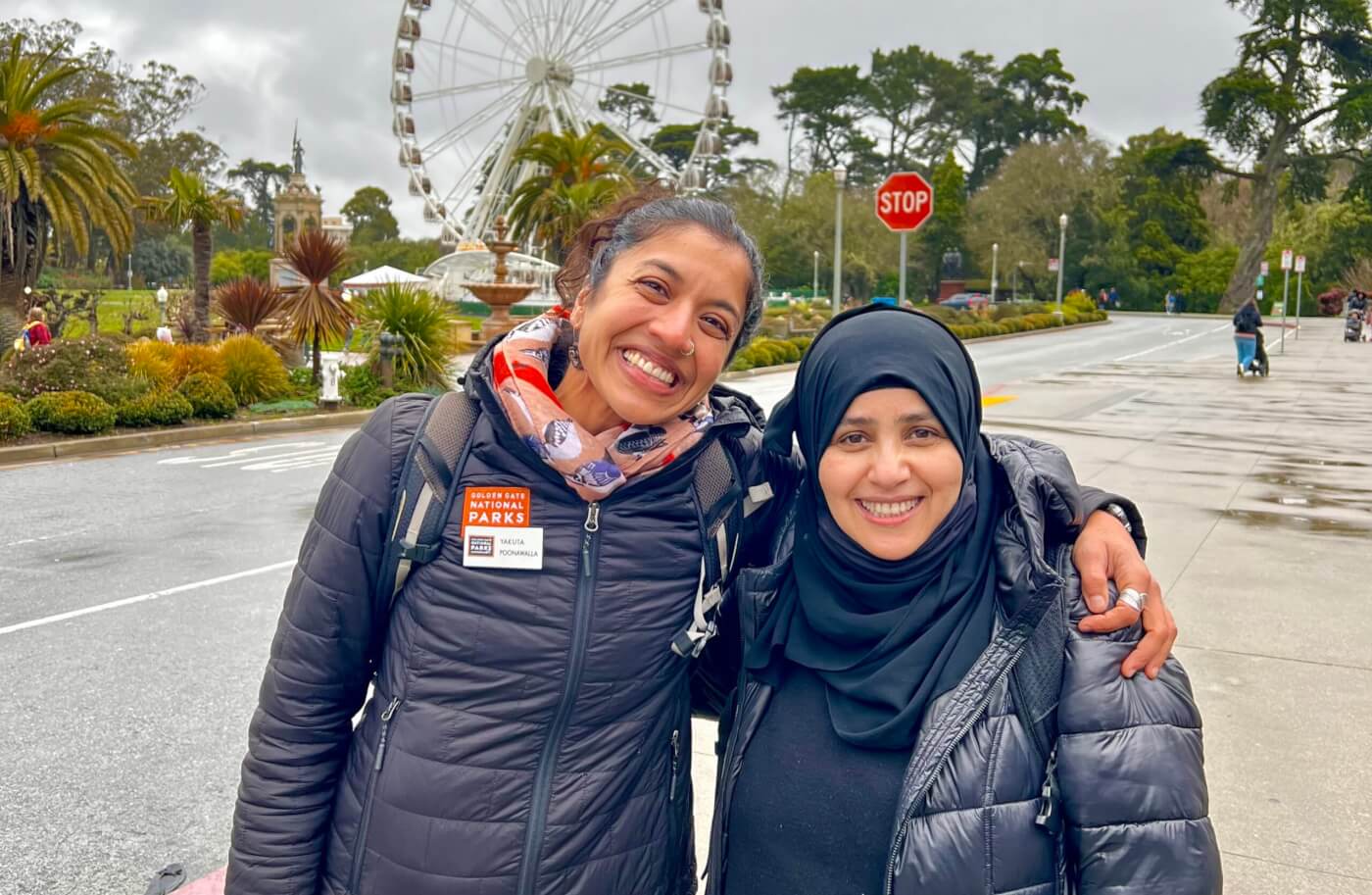
Yakuta and Bushra “kinning” in the parks.
Women and children slowly stepped out of the buses. They were in wonder at the famous park’s beauty. The magical bay waters, glistening a shiny blue this morning; the famous Golden Gate Bridge; and tons of free and open grass fields — all the park’s amenities welcomed our guests. The pelicans were particularly cheerful. I noticed that there were no men in the group, except for the community leaders.
A welcome table — thoughtfully set up with granola bars, maps of the park, art and craft supplies, a fresh flower vase, a bowlful of henna cones, and a chalkboard informing passersby about Eid and its importance — intrigued everyone. The children quickly found a box full of kites and began excitedly trying to put them together. Many others were already running around!

Girl flies a kite at the Presidio National Park event.
Even though we had reserved the newly-built wooden picnic tables, the group decided to lay out picnic blankets on the grass and huddle together in small groups. I should’ve known! Having grown up performing most activities on the floor, I have always been an awkward chair sitter. There is no better way to connect with the land than sitting on the floor. The picnic tables became an art and crafts table, where some of the children were deeply engrossed in coloring cutouts of endangered species of the area.
Some of the youth encouraged us to play a few famous Arabic songs on a Bluetooth speaker, which brought a new kind of cheer all around. When a personal language or mother tongue surrounds us, there is a deep sense of comfort and belonging.
At lunchtime, the families laid out large aluminum trays of food they had prepared at home. Yemeni breads and biscuits that looked like cinnamon rolls, meat dishes that looked exactly like what my Ma would make, rice pilafs, couscous and parsley salads, eggplant and potato casseroles. Sweet tea in small flasks. The families sat around the food, reminding me of how I grew up eating in a thaal, a large round plate often accommodating up to eight people. This is where I first learned about the importance of eating together.
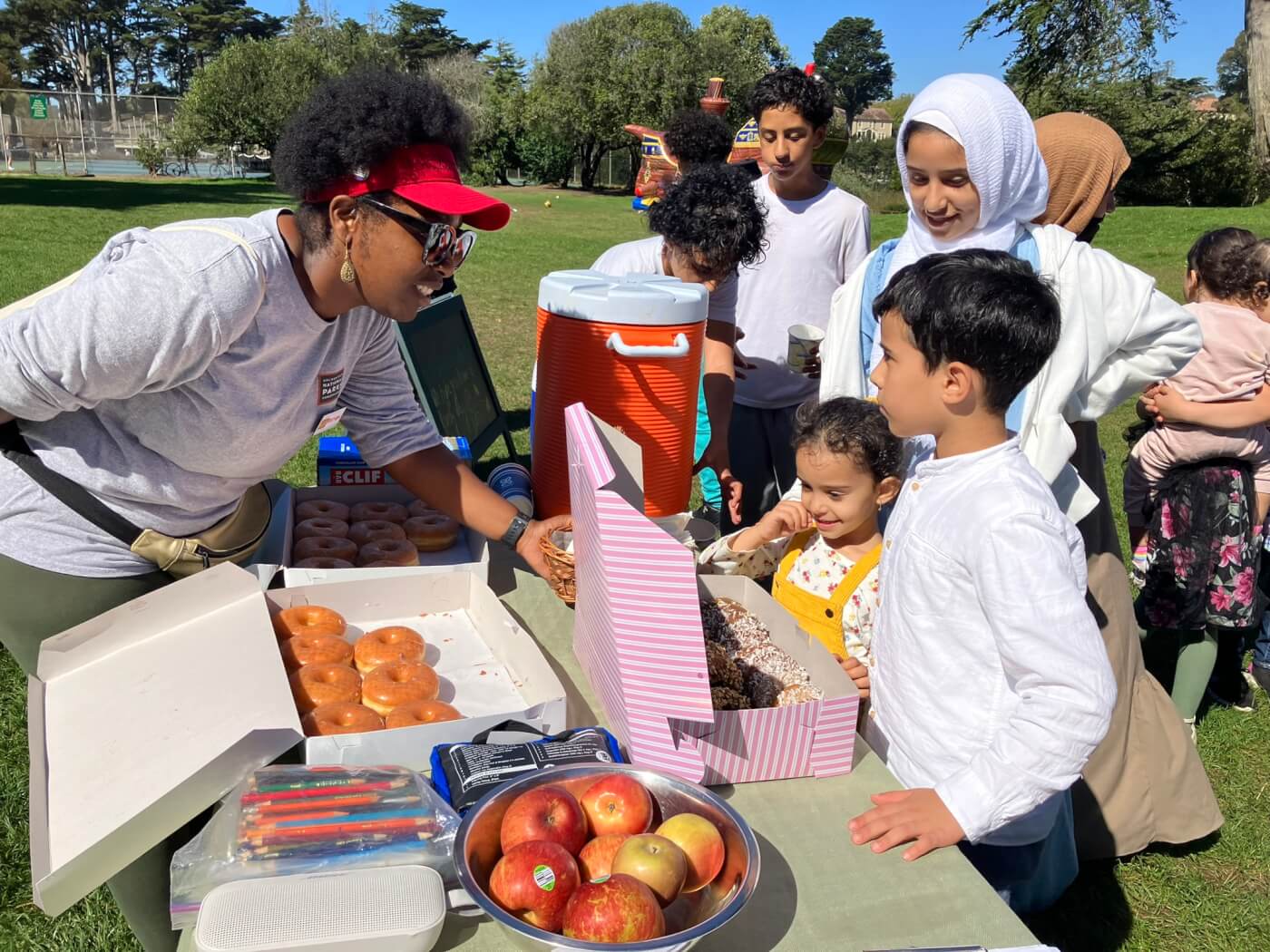
No park trip is complete without treats!
I noticed a group of sisters giggling. They found the kites delightful, and laughed as they tried to prevent the kids flying kites from running through our picnic. The clear blue sky was filled with orange, red, purple, green and pink kites. It sounds cliché, but my mind traveled to images from the book, “The Kite Runner” by Khaled Hosseini. I wondered what stories these sisters held from their past. Did it remind them of their motherland? Stories of freedom, stories of trauma?
The wind picked up and the fog started to roll in. After lunch we walked to the beach and one of the sisters gripped my hand tightly and asked, “Swimming?” She wanted me to accompany her. I’m no swimmer and I had no knowledge of her abilities but at that moment, how could I say no? We walked into the cool Bay waters, her in a full hijab, me in a skirt and jacket. In a few moments, her sisters joined her. One of them saw my jacket pocket open and quickly stuffed her phone and her few jewelry pieces inside and closed the zipper. This precious moment of trust and comfort filled my heart. I stood waist-deep in water, trying my best to keep the sisters close to the shore. In the distance, the kids were splashing in the water, jumping around and rolling in the sand. Joy knew no bounds, and kinship knew no boundaries on this day.
Drenched and cold, and covered in wet sand, we walked back for tea and biscuits. They hadn’t brought towels or an extra pair of clothes, but they didn’t care. The same sister gripped my arm again. “Friend?” The rest of our conversations in Arabic and Yemeni were poetry to me — even though I didn’t understand the words.
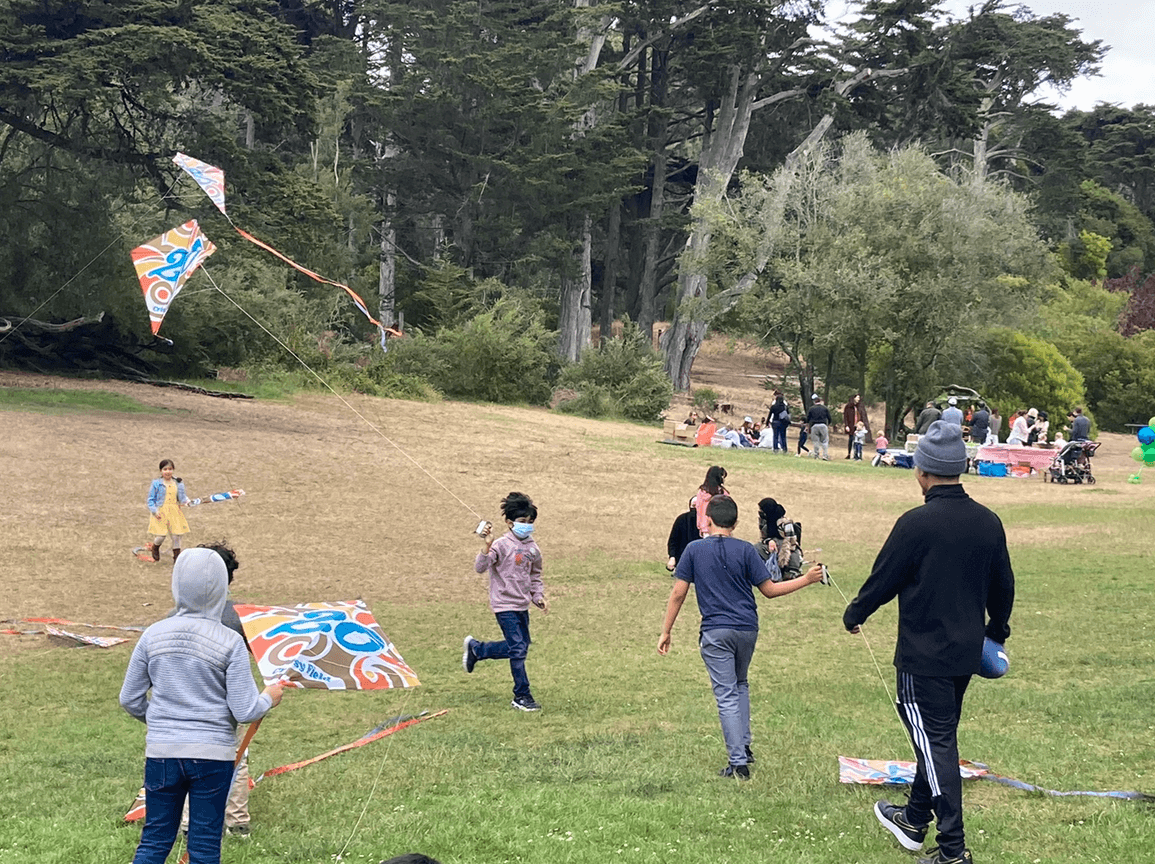
More kite flying fun at the Presidio National Park.
“How does a park get ready for fifty women in hijabs?” Bushra’s first question continues to tug at my heart and is a gift. The park made up of trees, lakes, flowers and birds doesn’t know how to judge, differentiate, restrict or exclude in the way that we humans have somehow learned to do. Nature — our more- than-human world, our kin — is ready for us to reconnect respectfully. It is we humans and the infrastructure that we create that needs preparation. Can the practice of kinship help us? I wonder.
*Note: The park programs featured in this story are possible with support from the Golden Gate National Parks Conservancy as a member organization of San Francisco Children & Nature, founded in 2017 as part of Cities Connecting Children to Nature (CCCN), a joint initiative of the National League of Cities and the Children & Nature Network – as well as the National Park Service, Presidio Trust, Arab Resource & Organizing Center, Tenderloin Community Benefit District, Cross-Cultural Family Center, San Francisco Recreation and Parks, and California Academy of Sciences.
-
Feature
GROWING POWER: Urban Roots connects young people with natural spaces, food systems – and one another
-
Feature
Nature photographer Dudley Edmondson has a vision for the representation of Black and Brown faces in the outdoors
-
Network News
Community Spotlight: Prescribe Outside
-
Richard Louv
SPRING FORWARD! 12 Ways to Make Sure Your Kids (and You) Get the Right Dose of VITAMIN N this Spring — and Summer, Too
-
Voices
Placemaking: How to build kinship and inclusive park spaces for children with disabilities
